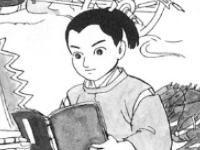I have come to realize that when you teach about "not resisting, going with the flow" you probably are meaning more than what we think of as "flow" in the mindfulness way that became a catchphrase for a time, and mostly referenced absorption in an activity. I can become absorbed in an activity or in work and concentrate for hours without distraction, even when things are chaotic or even catastrophic. However, when I am at large in the world and responding or reacting to all the random jostling and unwanted disturbances that fly at me, I have to consciously come back to the flow of the moment and remind myself not to resist, because it appears as though I have a choice in those times. Of course I always have a choice how to process and react, just in the work situation my mind has been trained to drop all extraneous thinking. Slowly I am learning to do this all the time, not just while working. The more one practices the dropping away of all resistance and boundaries during Zazen, the stronger the memory of this one can carry into the rest of life.
Gassho,
Jakuden
SatToday/LAH
Gassho,
Jakuden
SatToday/LAH



 I believe it is taught many places ...
I believe it is taught many places ... 



Comment